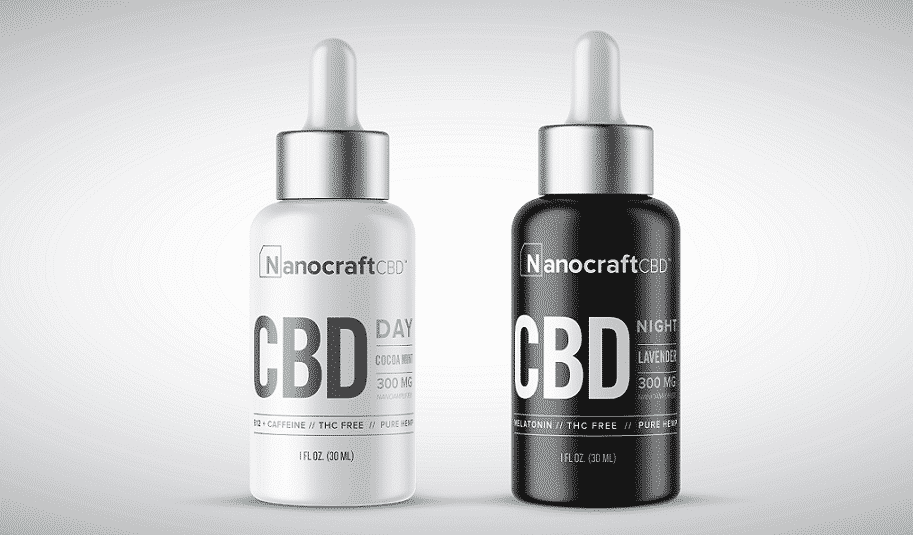CBD Oil for Fibromyalgia: Can It Clear the “Fibro Fog”?

Recent research is indicating that using CBD oil for fibromyalgia may work for some patients, but that a combination of CBD and THC may be more effective. Read on to learn more.
Fibromyalgia is a confusing and often misrepresented medical condition. It is characterized by widespread neuropathic pain, fatigue, dizziness, lowered mood, and cognitive impairments manifesting in poor focus and memory, often referred to as “fibro fog.”
The condition’s origin is often a mystery, but it’s assumed that it arises from one or a combination of both hereditary and environmental factors such as genetic mutations, various infections, and psychological or physical trauma.
The Scope of the Issue
The National Fibromyalgia Association estimates that around 10 million people in the US suffer from the condition, and put its global prevalence at between 3 and 6%. Females make up the vast majority of those affected, between 75 and 90%. Fibromyalgia is most common in middle-aged people, and it’s often developed by lupus and rheumatoid arthritis patients.
The aches and stiffness associated with fibromyalgia, which are felt throughout the body, are thought to be a consequence of repeated abnormal neural stimulation resulting in increased levels of neurotransmitters which signal pain.
The entire conflux of symptoms is also known to cause secondary issues which significantly degrade life quality, such as depression, anxiety, lack of ability to focus in work, and sleep disorders.
Conventional Fibromyalgia Symptom Management
The symptoms of fibromyalgia are usually treated with a combination of some of the following: psychotherapy, non-steroidal pain relievers (NSAIDs), depression/anxiety medication, lifestyle changes including exercise, yoga, and healthy nutrition, and various alternative healing methods such as acupuncture, biofeedback, or chiropractic treatments.
Can You Use CBD Oil for Fibromyalgia?
CBD oil is derived from Cannabis sativa, the same plant commonly grown for its psychoactive ingredient THC. However, CBD oil is produced from the strains of Cannabis sativa which were bred to reduce THC content to trace amounts (less than 0.3%). Due to this, using CBD oil for fibromyalgia symptom management does not produce a psychoactive effect.
The therapeutic potential of CBD oil is vast and well-researched. Some of the most well-documented medicinal applications of CBD oil are its potent analgesic and anti-inflammatory properties, which can be beneficial for neuropathic pain and stiffness, the primary symptoms associated with fibromyalgia.

CBD exerts these effects via the endocannabinoid system, one of the key internal pain regulation systems with modulatory actions at all stages of pain processing. Via indirect interaction with the endocannabinoid receptors throughout the body, CBD boosts the signaling of anandamide, a neurotransmitter linked to feelings of well-being and happiness. It then prevents its reuptake, pushing the excess quantities into the bloodstream, thereby reducing pain throughout the body.
Aside from the endocannabinoid system, CBD also interacts with:
- TRPV1 receptors, reducing pain sensation and inflammation.
- Alpha-3 glycine receptors, suppressing chronic inflammatory and neuropathic pain associated with dysfunction in these receptors.
- Glutamate NMDA receptors, lowering the levels of glutamate in the brain and spinal cord and reducing sensations of pain.
Although these studies were conducted on rat models, they serve as insight for how CBD’s analgesic and anti-inflammatory effects play out in humans. These effects have been demonstrated extensively in scientific research.
While there isn’t much research available specifically on the effects of this cannabinoid on fibromyalgia, a review of studies from 2013 concluded that it can serve to relieve neuropathic pain as a symptom of various conditions, including rheumatoid arthritis, multiple sclerosis (MS), and fibromyalgia.
A more recent study looked into the effectiveness of three cannabis-based products with varying concentrations of THC and CBD on patients suffering from fibromyalgia. The researchers used:
- 200 mg of Bediol, which has high amounts of both CBD and THC
- 200 mg of Bedrolite, which has high amounts of CBD and low amounts of THC
- 100 mg of Bedrocan, which has low amounts of CBD and high amounts of THC
The study reported that Bediol (high CBD and THC) was the only significantly more effective treatment than the placebo; it caused a 30% reduction in pain in 90% of the participants. However, it should be noted that the placebo itself reduced pain by the same margin in 55% of the patients, meaning that the psychological component in the pain sensation is considerable.
A combination of CBD and THC being found effective for treating generalized pain in fibromyalgia and similar conditions is not surprising. A large body of previous research has reported this effect, including another recent study specific to fibromyalgia patients, which included hundreds of participants, over 80% of which experienced significant pain relief after six months of cannabis treatment.
We don’t fully understand why the combination of CBD and THC is more effective in treating neuropathic pain than just CBD alone, but we know that it’s more than just the sum of their combined effects on neurotransmitter receptors. The two cannabinoids seem to work in synergy, and this process is known as the “entourage” effect in cannabis.
This is why, if you’re not averse to consuming THC, you should consider using cannabis products, which can be purchased in medical marijuana dispensaries in states where medicinal cannabis use is legal. Otherwise, CBD oil should also be of help in fibromyalgia symptom management, although likely not quite as effective of a solution.
How to Use CBD Oil for Fibromyalgia?
CBD products are available in many forms, including oils for vaporizing, capsules, drops, teas, gummies, topical products, and others.
Vaporizing CBD oil can provide almost immediate pain suppression due to the compound entering the bloodstream rapidly through the lungs. However, this relief is not very long-lasting and it’s more recommended for acute pain episodes than for persistent pain. Depending on how your symptoms manifest, you may want to consider it.
Taking CBD orally in the form of capsules, gummies, or chocolates provides a longer effect duration, but the onset is also delayed (about 30min to 2h) as the compound needs to go through the digestive tract and get metabolized in the liver. Whether this delay can suit your needs will also depend on the nature of your symptoms.

A good in-between solution is applying CBD tinctures sublingually. Sublingual administration allows the CBD to be relatively rapidly absorbed into the bloodstream (in about 5 to 20min), and the effects duration is comparable to that of oral intake. This is an adequate way to manage persistent pain.
If your pain is manifesting as localized stiffness or tenderness, you may want to consider topical CBD solutions. Rat model studies have shown that “Topical drug [CBD] application avoids gastrointestinal administration, first pass metabolism, providing more constant plasma levels,” thus mitigating the less optimal oral absorption rate. This means that this way of using CBD is most effective for localized pain points.
Additionally, if applied topically, the potential side effects of CBD oil are avoided as the compound doesn’t enter the bloodstream. If ingested orally, sublingually, or vaporized, CBD oil can cause a few relatively mild and infrequent side effects such as dry mouth, diarrhea, reduced appetite, drowsiness, and fatigue.
These side effects can be exacerbated in the case of interaction of CBD with certain over-the-counter (OTC) drugs, prescription medications, and dietary supplements. If you are already taking some pain relievers, it’s highly advised to consult your physician before taking CBD oil for fibromyalgia.
Finally, CBD can also greatly help with the secondary sufferings caused by fibromyalgia. Using CBD oil has proven effective in treating anxiety and depression, as well as for regulating sleep.
Have you tried using CBD oil for fibromyalgia already? What are your experiences?
If you haven’t, are you considering it? What are your concerns?
Please share them with us in the comments below.
